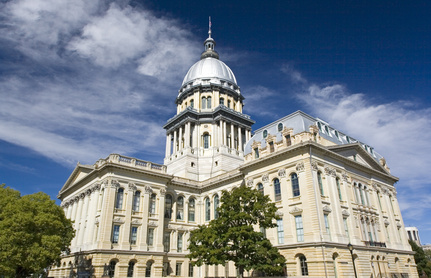The District Court of Appeal of the State of Florida, Fourth District, recently affirmed the dismissal of a mortgage foreclosure action because the mortgagee failed to present competent, substantial evidence that it had standing to foreclose, due to lack of conformity between the name of the plaintiff mortgagee and the names in the transactional documentation by which the plaintiff mortgagee claimed an interest in the note at issue. A copy of the opinion in Bank of New York Mellon Trust Company, N.A. v. Dennis M. Conley, et al. is available at: Link to Opinion. A mortgagee filed a foreclosure action. The promissory note contained…
The U.S. Court of Appeals for the Seventh Circuit recently upheld the dismissal of allegations that two letters sent to the consumer’s counsel violated the federal Fair Debt Collection Practices Act (FDCPA), reiterating that its “competent attorney” standard applies regardless of whether a statement to the consumer’s counsel is false, misleading or deceptive. A copy of the opinion in Bravo v. Midland Credit Management, Inc. is available at: Link to Opinion. In a prior action, the debtor sued a debt collector for alleged violations of the FDCPA. The case settled with the collector settling and releasing two of the debtor’s debts. After settlement,…
The U.S. District Court for the District of Oregon recently granted summary judgment in favor of a debt collector, ruling that the collector’s voice mail messages for the debtor did not unlawfully communicate with a third party under the federal Fair Debt Collection Practices Act (FDCPA) and related state law, because the collector could not “reasonably foresee” that debtor’s boyfriend and manager would overhear the voicemail messages left on her cell phone. A copy of the opinion in Peak v. Professional Credit Service is available at: Link to Opinion. A debtor’s unpaid account was referred to a debt collector. The debtor negotiated a…
The U.S. Court of Appeals for the Sixth Circuit recently held that a bankruptcy court clearly erred in its finding that a debtor proposed a Chapter 11 plan in good faith, when the secured mortgagee would be paid only in part and very slowly after 10 years with no obligation by the debtor to maintain the building and obtain insurance, while a second class would be paid in full in two payments of $1,200 each over 60 days. In so ruling, the Sixth Circuit held that the artificial creation of an “impaired” class under section 1124(1) of the Bankruptcy Code,…
The District Court of Appeal of Florida, Second District, recently held that a notice of assignment of a mortgage loan pursuant to the Florida Consumer Collection Practices Act (FCCPA) is not a condition precedent to filing a mortgage foreclosure action, but certified the question to the Florida Supreme Court for resolution as one of great public importance. A copy of the opinion in Brindise v. U.S. Bank National Association is available at: Link to Opinion. Husband and wife borrowers obtained a mortgage loan in 2005, which was later transferred to a new holder via “blank endorsement,” which under section 673.205(2) of Florida’s…
The U.S. Bankruptcy Court for the Southern District of Florida recently denied a mortgagee’s motion to reopen a Chapter 7 case to compel the surrender of real property, due to a five-year delay in filing the motion. In so ruling, the court agreed with an earlier ruling from the U.S. Bankruptcy Court for the Middle District of Florida (In re Plummer, 513 B.R. 135 (Bankr. M.D. Fla. 2014)), distinguishing “surrender” from “foreclosure,” and holding that a creditor cannot use the Bankruptcy Code to circumvent the obligations imposed by state law. A copy of the opinion in In Re Kourogenis is available…
In an unreported ruling, the U.S. Court of Appeals for the Ninth Circuit recently affirmed summary judgment for the defendant in a putative class action for alleged violation of the federal Telephone Consumer Protection Act (TCPA). The Court held that the named plaintiff expressly consented to the text message in question when she provided her cell phone number to a third party contracting with the defendant while using the third party’s services. A link to the opinion in Baird v. Sabre, Inc. can be found here: Link to Opinion. The named plaintiff booked flights online for herself and her family…
On Jan. 7, the Expired Debt Act (EDA) was introduced in the Rhode Island House of Representatives and referred to the House Committee on Judiciary. The bill was introduced by State Representatives Shekarchi, Solomon, Regunberg, McEntee, and Craven. Since 2007, Rhode Island has had its own Fair Debt Collection Practices Act (RIFDCPA) that is, for the most part, identical to its federal counterpart. The EDA, however, introduces new definitions and restrictions related to debt collection. The EDA defines a “collector” as “a person collecting or attempting to collect an alleged debt arising out of a consumer transaction.” The definition is…
The U.S. Court of Appeals for the Fourth Circuit recently held that a finance company properly cured a contractual interest rate provision in excess of the statutory cap, and was not liable under the Maryland Credit Grantor Closed End Credit Provisions (MCLEC). However, the Court also held that the defendant could be liable under the Maryland Consumer Debt Collections Act (MCDCA) if it falsely claimed to have taken legal actions against the debtor. A copy of the opinion in Askew v. HRFC, LLC is available at: Link to Opinion. In 2008, a customer entered into a retail installment sales contract…
The U.S. Court of Appeals for the Seventh Circuit recently held that a lender that is on inquiry notice that its security interest in the collateral had been fraudulently conveyed may lose its secured status. However, the Court also held that the lender’s negligence here did not amount to “purposeful avoidance of the truth” sufficient to justify application of the doctrine of equitable subordination, which allows a bankruptcy court to reduce the priority of a claim in bankruptcy. A copy of the opinion in In Re Sentinel Management Group, Inc. is available at: Link to Opinion. The bankrupt debtor was a…
In a case that attracted a number of amici for both the borrower and the mortgagee, the U.S. Court of Appeals for the Fourth Circuit recently affirmed a trial court’s summary judgment ruling against a borrower holding that “the amount of a mortgage loan, by itself, cannot show substantive unconscionability under West Virginia law.” However, the Fourth Circuit allowed the borrower’s claim of “unconscionable inducement,” holding that the applicable West Virginia statute authorized such a claim “even when the substantive terms of a contract are not themselves unfair.” A copy of opinion in McFarland v. Wells Fargo Bank, N.A. is available at: Link…
On Jan. 29, 2016, Illinois Governor Bruce Rauner signed into law SB 1369 that provides welcomed corrections to the Illinois Collection Agency Act that was amended in 2015 by HB 3332. In a previous CFS blog, we described the proposed changes in SB 1369 that would rewind some of the unintended consequences wrought by HB 3332. The Illinois Legislature should be commended for its quick turnaround in implementing this fix, which became effective upon the Governor’s signature.












